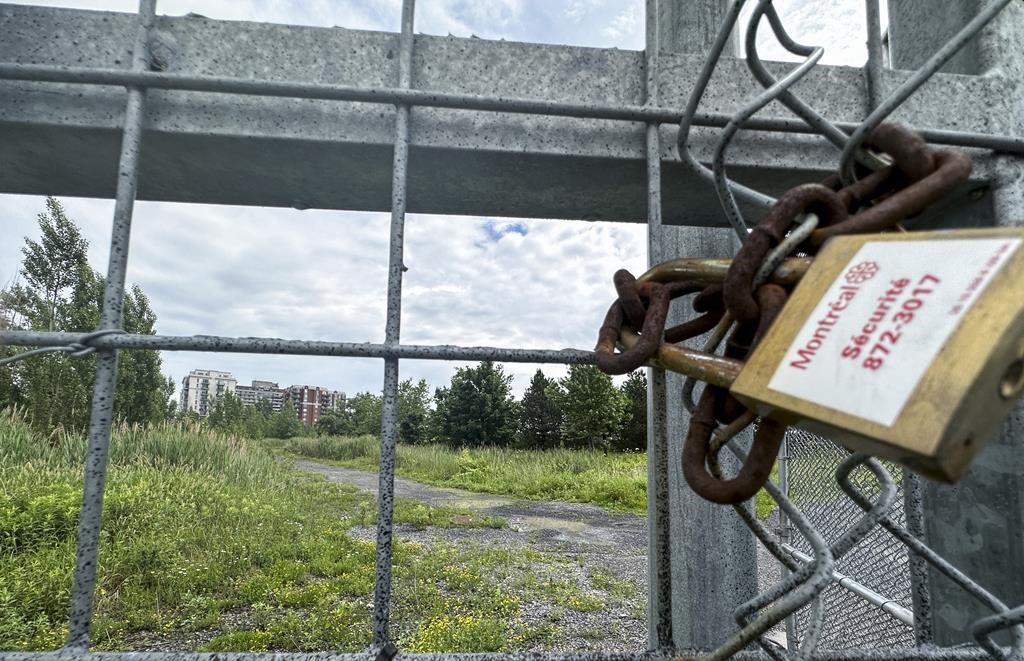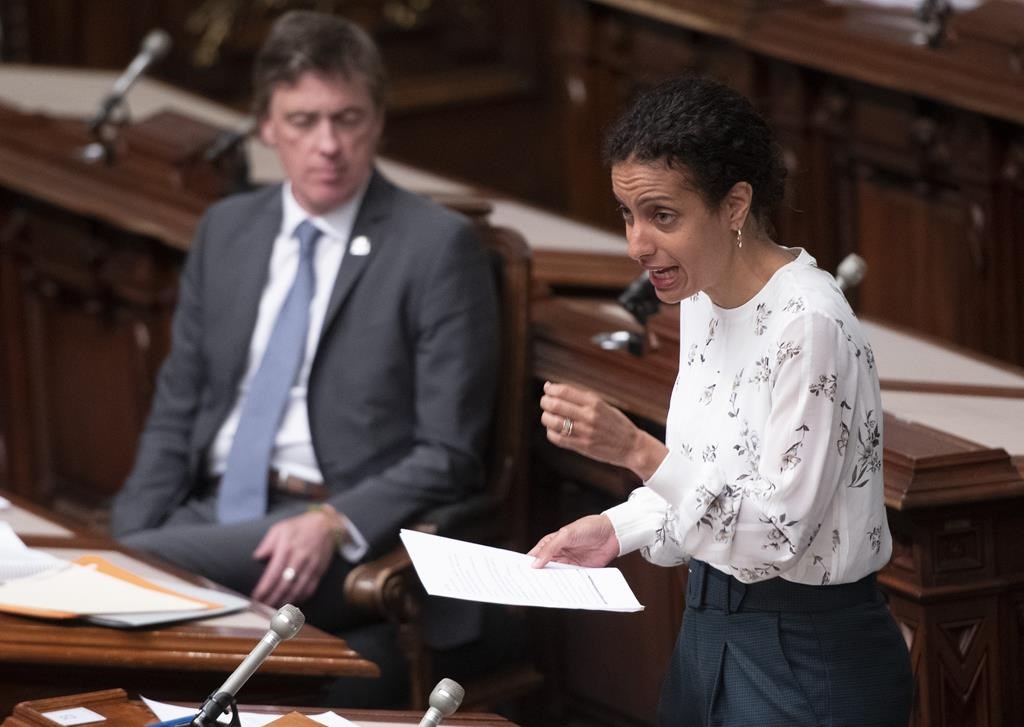Pfizer, Moderna vaccines granted full approval by Health Canada; get unique name change
Posted September 16, 2021 11:45 am.
Last Updated September 16, 2021 8:17 pm.
Health Canada announced both Pfizer-BioNTech and Moderna’s mRNA vaccines have been formally granted full approval for anyone aged 12-and-up in the country.
This comes after the interim order for both vaccines expired on Thursday. The order allowed for the essential and quick rollout of vaccine doses across Canada to help provide protection during the COVID-19 pandemic, based on preclinical and clinical data.
Pfizer-BioNTech’s vaccine was initially authorized for use in Canada under an interim order on December 9, 2020.
“Based on the longer-term follow-up data that we submitted, today’s decision by Health Canada affirms the efficacy and safety profile of our vaccine at a time when it is urgently needed,” said Fabien Paquette, Vaccines Lead, Pfizer Canada.
“While a significant number of eligible Canadians are fully vaccinated, there is still much work to be done as infection and hospitalization rates continue to rise across the country, primarily among unvaccinated populations.”
“Today’s full approval is a testament to the vaccine’s efficacy and safety profile,” said Ugur Sahin, M.D., CEO and Co-founder of BioNTech.
Moderna called the approval “an important milestone.”
“I would like to thank Health Canada for their hard work throughout the process,” said Stéphane Bancel, Chief Executive Officer of Moderna. “I would also like to thank the Government of Canada for the partnership they have built with us and for their confidence in our mRNA platform in addressing the COVID-19 pandemic.”
The Moderna vaccine was originally authorized in Canada under an interim order for individuals 18 years of age and older granted by Health Canada on December 23, 2020. On August 27, Health Canada expanded the interim order authorization to include adolescents 12 years of age and older.
AstraZeneca’s COVID-19 vaccine, still authorized under the interim order, remains under review. Health Canada says the vaccine “was not transitioned to the Food and Drug Regulations when the interim order expired on Thursday.”
Health Canada also formally authorized a name change for three COVID-19 vaccines, including Pfizer-BioNTech, Moderna, and AstraZeneca.
The Pfizer-BioNTech vaccine will now be named Comirnaty, the Moderna vaccine will be named SpikeVax, and the AstraZeneca vaccine will be named Vaxzevria.
(1/4) Health Canada has authorized brand name changes for the Pfizer-BioNTech, Moderna and AstraZeneca COVID-19 vaccines.
— Health Canada and PHAC (@GovCanHealth) September 16, 2021
Health Canada clarified these only name changes and that nothing has been modified with the vaccine themselves.
“All COVID-19 vaccines authorized in Canada are proven safe, effective, and of high quality,” they wrote on Twitter.
The new names are already being used for promotional purposes in the EU and the United States.
As of September 9, there are just under 10.5 million COVID-19 vaccine doses in Canada’s central vaccine inventory.
Pfizer’s vaccine, now known as Comirnaty, is approved for individuals 12 years old and up.
Clinical trials showed that beginning one week after the second dose, the Pfizer-BioNTech Comirnaty vaccine was approximately 95 per cent effective in protecting trial participants from COVID-19 for those 16 years and older and 100 per cent effective for those 12 to 15 years old.
This vaccine requires two doses for maximum protection.
The dosing schedule approved by Health Canada is to give the 2 doses 21 days apart, based on evidence from clinical trials.
Canadians that received Pfizer-BioNTech Comirnaty as a first dose can be offered Moderna Spikevax as a second shot and vice versa. This is known as a mixed vaccine series. The National Advisory Committee on Immunization (NACI) recommends an mRNA vaccine (Pfizer-BioNTech Comirnaty or Moderna Spikevax) as interchangeable second doses.
Moderna Spikevax is approved for people who are 12 years of age and older. Clinical trials showed that beginning 2 weeks after the second dose, the Moderna Spikevax vaccine was 94.1 per cent effective in protecting trial participants aged 18 and above against COVID-19 and 100 per cent effective in trial participants 12 to 17 years old.
This vaccine requires two doses for maximum protection. Based on evidence from clinical trials, the approved dosing schedule is to give the two doses one month apart.
The AstraZeneca Vaxzevria vaccine is approved for people who are 18 years of age and older in Canada. Clinical trials showed that beginning two weeks after the second dose, the AstraZeneca Vaxzevria vaccine was 62 per cent effective in protecting trial participants against the virus.
This vaccine requires two doses for maximum protection. The dosing schedule approved by Health Canada is to give the 2 doses four to 12 weeks apart, based on evidence from clinical trials.
NACI recommends that an mRNA vaccine (Pfizer-BioNTech Comirnaty or Moderna Spikevax) be offered a second dose to those who received AstraZeneca as a first shot.
On Thursday, Canada’s top doctor, Theresa Tam, said accelerated vaccination programs and other measures are the only way to stop the surging Delta variant from overwhelming hospitals in some regions.
About seven million people are still not fully vaccinated.
“Reported cases and severe illness are predominately occurring among unvaccinated people,” Tam said.
“During the month of August, the average weekly rate of new COVID-19 cases was 11 times higher, while the average weekly rates of hospitalizations were 39 times higher in unvaccinated people than in fully vaccinated people.”
As of Wednesday, 74 per cent of Canadians have received at least one dose of an approved COVID-19 vaccine, while roughly 68 per cent are fully vaccinated.



